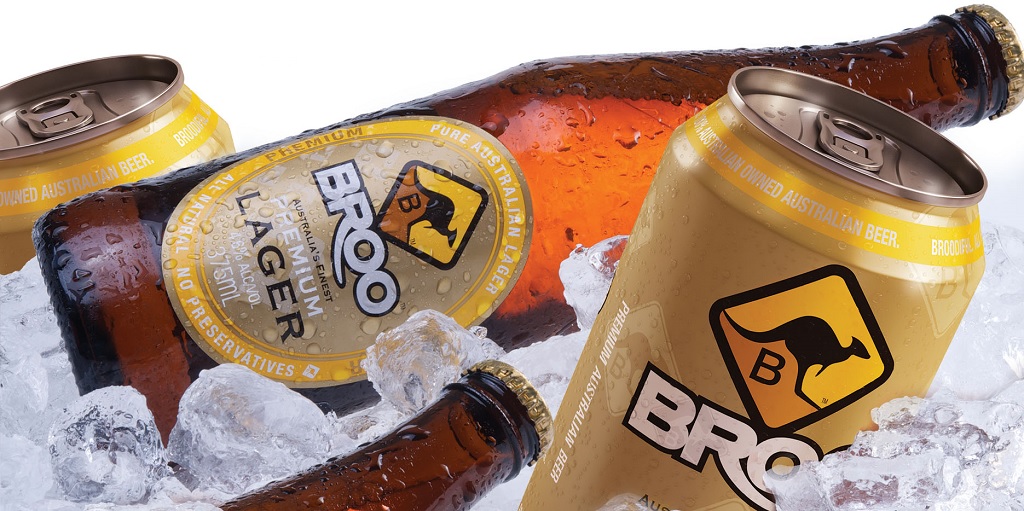
Broo anounces Oz focus as losses continue

Flailing ASX-listed brewer Broo has announced another quarter of losses with a cash deficit of $760,000, taking its accumulated losses since 2014 to more than $20 million.
Broo’s results follow the announcement earlier this month that its celebrated China distribution deal had collapsed.
Under the purported ‘Take or Pay’ deal, Broo tantalised its long-suffering shareholders with the promise of a $19.6 million royalty payment in December 2020.
Broo had been strangely silent on its China activities since telling the market in October 2018 that China wholesale volume of 19.2 million litres had been achieved, “in line with the Year 1 forecast expectation of the binding agreement”.
In an all-too-familiar strategy, Broo has used its quarterly update to shift attention from a failed strategy, saying the company’s focus is now “on increased domestic distribution, rapid sales growth and increased revenue,” through a distribution agreement with distributor ALM.
Broo’s current update is almost identical to its August 2017 update when it trumpeted a national distribution agreement with Australian Liquor Marketers (ALM) to offer Broo beers to liquor wholesalers in its network.
“The company is planning to roll out an aggressive national sales and marketing strategy to optimise this new national distribution channel,” it said three years ago.
Following that announcement Broo had been focusing on China in the face of continuing domestic losses and lack of sales growth under that agreement.
The current quarterly update also renews focus on its $100 million “World’s Greenest Brewery” project, under which it intends to develop a “world-class brewing facility” on land at the Ballarat West Employment Zone (BWEZ).
However, the land that Broo purchased is subject to a call option with the vendor having the option to buy back the land in the event that Broo defaults on its obligations to complete the development of a commercial brewery at the site and ensure that at least 100 full-time employees are employed at the site within five years of settlement.
Broo entered into the agreement in March 2017, leaving just over a year to complete the project.
Broo’s ability to finance any development would appear unlikely given Broo was forced to undergo a further capital raising last year to pay for the beer under its contract brewing arrangement with Carlton & United Breweries, and the land is currently subject to a mortgage.
CUB agreement
In August 2020 the company celebrated a contract brewing arrangement with CUB, under which it would produce 48,000 cases of beer a quarter. Broo undertook a capital raising through a further share issue to pay for beer under the agreement, and outlined production costs of $777,000 in its December quarterly accounts.
While Broo has not disclosed how much beer was produced in the quarter, assuming these funds were applied to the full quarter’s contract, Broo is paying $16.18 per case under the arrangement, with excise on per carton of approximately $14.37.
With an estimated cost per case of $30.56, Premium Lager currently retailing through East End Group for $37.99, including retailer margin, leaving very thing margins for Broo, especially considering it is competing against CUB’s own Great Northern lager, also a 4.2% abv beer, which retails at the same hotel chain for $45.99.
China deal
When it announced the deal, Broo’s then-distributor Jihua was due to purchase beer directly from Broo’s ‘approved manufacturer’ Jinxing. The Jinxing agreement, entered into in June 2015, was outlined in Broo’s IPO prospectus. It was described as a “five-year exclusive agreement with Jinxing to produce Broo products in China”.
Broo has provided no updates to the production agreement, or advised shareholders or the ASX of its expiration or renewal, since 2017.
In its 2017 annual report, Broo advised that it expected to secure revenues from China sales under its Jinxing supply and distribution agreement during the 2018 financial year, noting expenses of $34,099 against its China operations.
In its following annual report, Broo revealed costs of $340,000 for its China operation, presumably for payment of contract production, but showed no income under the distribution agreements.
In its 2019 annual report, Broo recorded costs of just $2,373 with no income recorded.
Broo’s 2020 annual report continued to note that the company maintained four reportable operating segments, including its Chinese brewing operations, but did not report any China revenue or costs.
Neither Kent Grogan nor company secretary Justyn Stedwell have replied to questions from Brews News about the company’s Chinese operations.
While publicly listed companies have an obligation to continuously disclose information which may have an effect on its market price or value, the ASX leaves companies themselves to decide what is appropriate disclosure.
“Under listing rule 3.1, once an entity is or becomes aware of any information concerning it that a reasonable person would expect to have a material effect on the price or value of the entity’s securities, the entity must immediately tell ASX that information,” an ASX spokesperson advised.
“In the first instance, it is the companies themselves that are best placed to make that assessment; materiality differs from company to company.
“ASX closely monitors disclosure as a matter of course and has a range of enforcement powers it can exercise if an entity commits a breach of listing rule 3.1.”



